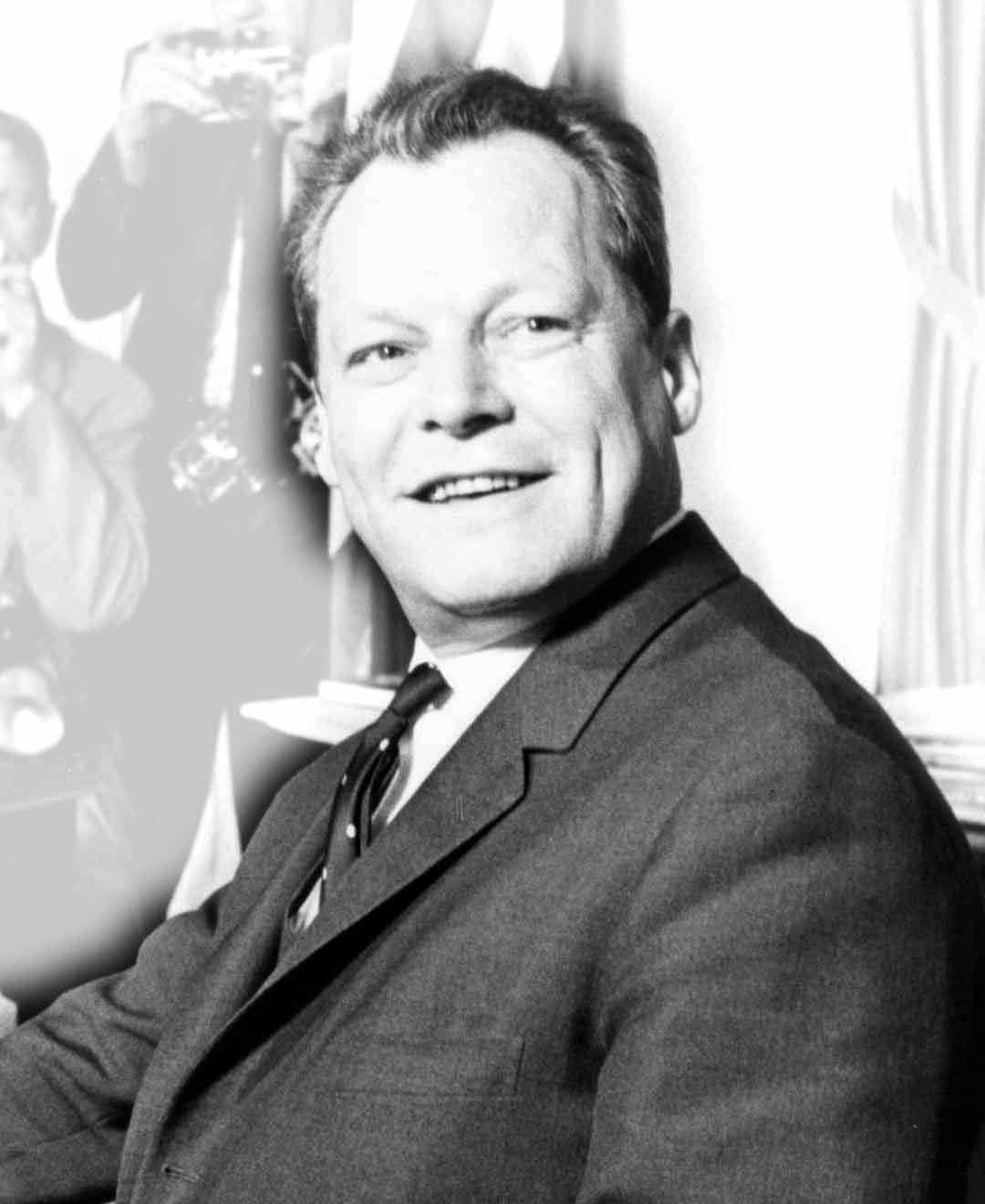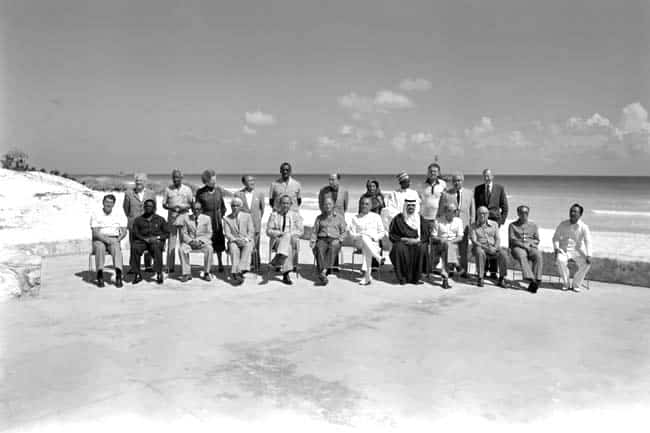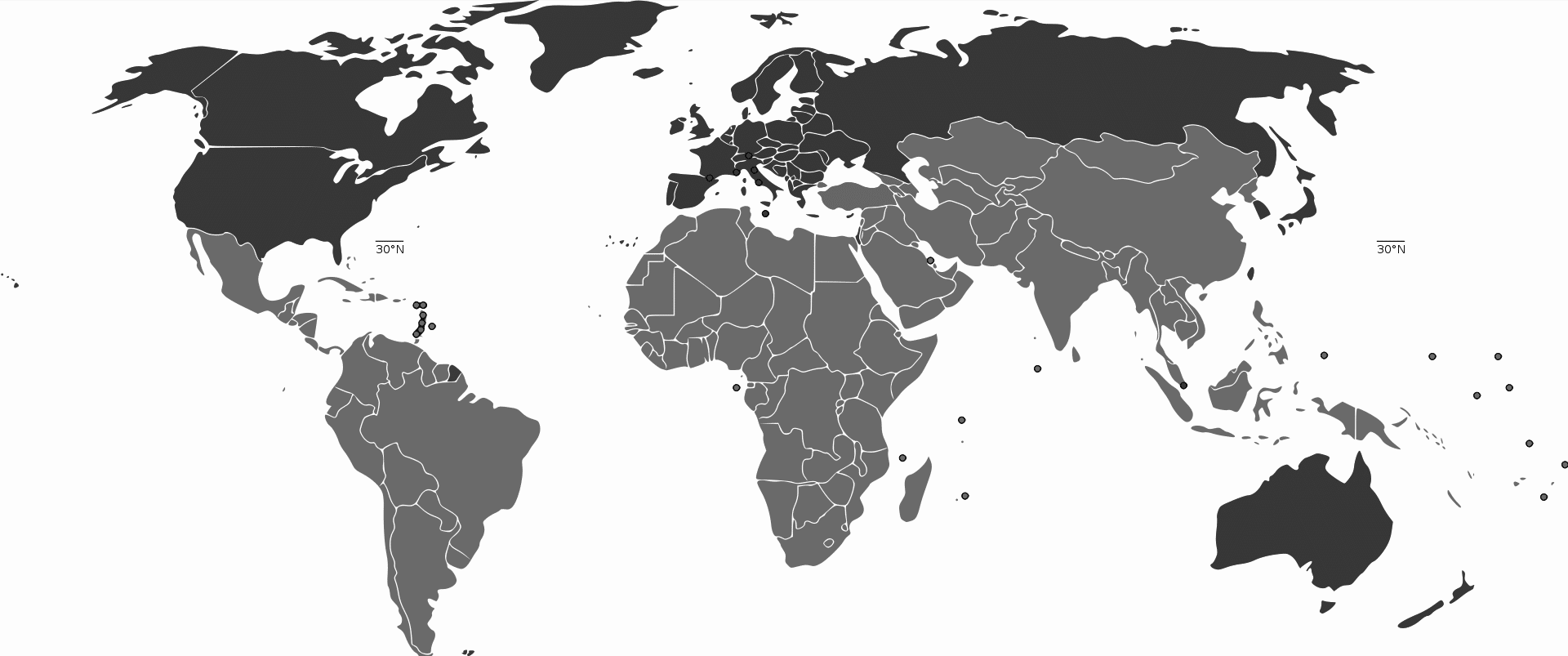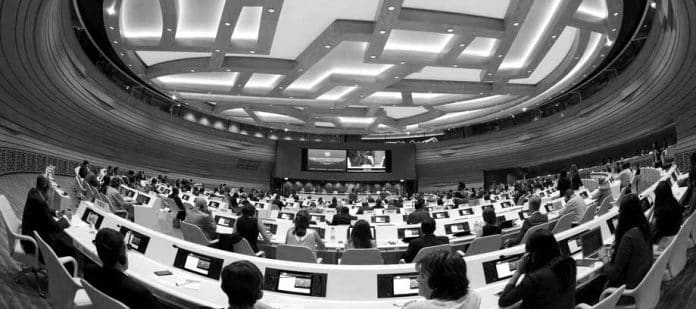SPEECH BY MWALIMU JULIUS K. NYERERE CHAIRMAN OF THE SOUTH CENTER, AT THE COMMISSION’S INAUGURATION CEREMONY, GENEVA, 2 OCTOBER 1987
Inaugural Speech of the South Commission (South Center), Geneva, 1987
Gentlemen, Members of the South Commission, Friends.
As we officially begin the work of the South Commission in today’s inaugural speech, I would like to thank the Swiss Federal Government

and the authorities of the City of Geneva and Canton for their cooperation with my colleagues and myself in the participatory planning initiatives to establish this Commission. Indeed, we are indebted to them for their commitment to providing us with office support, and for their support in organizing – in the short term – this Conference launch.
This independent international commission to investigate the problems of the Southern Economy is a long-term product of ideology and dialogue among various Southern scholars and leaders. At the Second Third World Conference of Scholars and States officials in Kuala Lumpur last year, the idea was finally developed. The Steering Committee, established under the chairmanship of Prime Minister Mahathir Mohamed, was tasked with ensuring that the project continues. On September 1, 1986, I accepted the position of Chairman of the Independent South Commission. The idea was then backed by the United Nations Conference on Non Aligned Movement in Harare in September 1986, and earlier this year it was welcomed at the Group of 77 Ministerial Conference in Havana. Also, myself and a group of friends and close people from the Steering Committee have been discussing the idea with the Government and academic leaders in many Southern Economy countries. Today’s inaugural speech is a continuation of these events. I thank everyone involved for their cooperation and support.
The purpose of the South Commission can be better understood from a brief look at its history.
Growth and Hope – then Disappointment
The Third World came to realize its potential once the anti-colonial movements achieved success in a period after 1945. It included mainly Latin American countries and new Asian and African countries that gained independence. All of these countries were not economically developed and very dependent on the developed economies of Europe and North America, and most were also nations with new, weak, and fragile governments and administrations.
Even now, after decades, the common characteristics of what we call the Southern Economy are: a serious economic and technical decline; dependence, rather than a sincere interdependent relationship with, the Northern Economy; inability to make important but fundamental contextual decisions that affect the lives of their people; and – saving in a few exceptional cases – an unbearable level of national poverty.
However, until the early 1970’s, economic development took place almost everywhere in the Third World. The growth figures were impressive, and there was hope.
The prospect of relief, however slow, was strengthened because the whole world seemed eager to see it happen. The World Bank’s International Development Community was established in 1960, and UN agencies such as UNCTAD and UNIDO were established later in the

decade. In addition, the requirements of the New International Economic Order, introduced at the United Nations Non Aligned Movement in Algiers in 1973, were discussed at a special session of the United Nations General Assembly in 1974. IFAD was established in late 1977, by the Commission of Brandt that was launched around the same time. Global poverty was on the global economic agenda.
That hope, however, is now gone. It was gradually discovered that such progress as it had been in the first three decades after 1945 did not mean any significant change in the status quo or real aspirations for the development of Third World countries. Dependency was increasing rather than declining, poverty was continuing and the income gap between the Rich North and the South of the Poor was widening.
The 1980’s intensified the confusion, as it was a time of great frustration for much of the Third World. Standards of living have been declining in many countries — situation that led to social, economic, and political tensions. Population growth meant more jobs were needed, but investment rates almost everywhere fell under the constant and unstoppable pressure of reforms that led to a dramatic deterioration in the global economic environment.
Not surprisingly, this frustration is now more widespread than: the elite and the few political leaders who started it. It is currently the result of extensive and unpleasant experiences, not from statistical and academic analysis. And it is reflected in the strong suspicions towards existing development strategies, and the real hostility towards policy advice emanating from international financial institutions and lending governments.
In such a situation, it is important for Southern countries to take an in-depth look at their development experience and aspirations, and to carefully consider all the opportunities that are open to them – not just the most acceptable ones. They need to do this individually and collectively, and always as responsible members of an increasingly interdependent world. And they must do so in order to shape their own future according to their aspirations, while facing the challenges of growth, development and equality.
That, in essence, is the work of the South Commission. To achieve this, the Commission will be required to mobilize all Third World educational resources, in addition, if necessary, in collaboration with allies of the North who wish the Third World well.
Challenges of International Economic System
The crisis of development over the past decade has been accompanied by a crisis that has never occurred in international economic integration. Currently there is compelling evidence that the economic turmoil in the Third World does not meet the consequences of the massive disruption of international programs that regulate the flow of international trade, resources, tech and investment. In such programs developing countries have no control over them.
It is true that we in the South have made our own policy mistakes, and have often failed to be effective – or even expected – in implementing good policies. But our shortcomings do not consider the complexity of the world economy as a whole and especially the Third World. One cannot gain true understanding of the nature of the debt crisis, for example, without regard to falling commodity prices, increasing bad trade conditions for the Third World, and a general decline in external revenues from the Southern Economy. Nor can one be aware of how great a debt burden is for an undeveloped economy unless one considers interest rates in relation to, shoulder to shoulder with, a sharp decline in commodity prices.
Furthermore, at a time when Third World countries are in dire need of mass relocation of resources to expand and restructure their economies, resources are instead flowing in the opposite direction (like a rising mountain water) – from the Poor South to the Rich North. And when there is pressure on developing countries to have additional export earnings, their exports face new barriers to domestic market protection – especially non-tariff barriers. Not surprisingly, growth impacts are declining every year.
This harsh global economic environment means that the debt service involved, year after year, has created intolerable constraints in spending and investment. This situation is not conducive to anything, it is fraught with serious consequences.
The Collapse of International Cooperation
Despite this fact, there is no indication that the countries that are most responsible for overseeing the global economic system are alive from the devastation that their policies generally afflict the Third World. There was a time when everyone seemed to accept the New International Economic Policy as a clause in the Global Economic Agenda. But no one is talking now in that logic. International dialogue on strengthening unparalleled plans for trade, resources, technology and capital, has never been initiated; The Cancun conference organized after the publication of the Brandt Report signaled the death of any willingness on the part of the Wealthy States to discuss these issues.

From left to right, front row: Ronald Reagan (USA), Simeon Aké (Côte-d’Ivoire), Abdus Sattar (Bangladesh), Chadli Bendjedid (Algeria), Hans-Dietrich Genscher (FRG), Pierre Elliott Trudeau (Canada), Jose Lopez Portillo (Mexico), Prince Fahd (Saudi Arabia), Willibald Pahr (Austria), Ramiro Saraiva Guerreiro (Brazil), Zhao Ziyang (China), Ferdinand Marcos (Philippines).
Back row: Sergej Kraigher (Yugoslavia), Julius Nyerere (Tanzania), Margaret Thatcher (UK), Zenko Suzuki (Japan), Forbes Burnham (Guyana), François Mitterrand (France), Indira Gandhi (India), Alhaji Shehu Shagari (Nigeria), Thorbjörn Fälldin (Sweden), Luis Herrera Campins (Venezuela), Kurt Waldheim (UN)
No international political effort has been made to promote a common international perspective that is conducive to developing interdependence in the world in which we live. On the contrary, every effort is made to force policies that are pre-matured and has ideological perspectives of the Third World. These are strategic in such a way that will seriously undermine the South’s ability to develop an independent development plan that suits the conditions and needs of the people of the South.
For all these reasons, as an important part of this inaugural speech, i highly recommend that the South Commission evaluate specific global environmental objectives as they affect the Third World, and have an impact on future development plans. And it should devise alternative strategies for itself.
National and Collective Self-Reliance
This is being done more urgently due to slower growth in OECD countries, and a slower rate of growth in world trade compared to 1953-1973. The effect of this is that the North is no longer implementing its theory (and in the post-World War II years) which is responsible for pulling the Third World growth behind it. Nor is there any indication of the development of the opposite in the current state of slow growth of the world economy (i.e., the economy dominated by a few developed countries), and the decline of world trade. In contrast, current growth rates are based more on history, apart from the period 1953-1973.
If the South recovers and then accelerates its growth, it must find new sources of growth in it. Increasing emphasis on agriculture and food production, and the economic well-being of small and rural farmers, as well as other underdeveloped groups, may contribute to this. It could, for example, expand the domestic market for locally produced goods, at least for those Third World countries that already have the core of a thriving industrial sector. Even in a few developed countries, such emphasis on agriculture and food production is the only way that any capital can be raised from domestic sources – although this is not easy given the continuing fall in international commodity prices.
With the same importance, is the role of increased South-South cooperation in expanding the development of choice and the scope of open thinking for the Third World. These partnerships must be multidisciplinary and must include areas such as trade, investment, science and technology, and infrastructure and human resource development.
All possible ways and means to promote South-South cooperation must be explored. Scope and potential or both sides, part of a region, regional, and regional to regional interaction settings must be carefully analyzed and priorities for actions identified. There are many experiences – of success and failure – of learning. At present a few or three experiments in this field are known outside their area, and there is still a lack of comprehensive understanding of the Third World on the factors that led to successful relations or the failure of different efforts to co-operate within the Third World borders.
Giving a real image of collective independence must be a major task for the Commission. It must come up with an effective and practical plan in this important area, with an emphasis on how it can be done in different contexts and for different sectors and actors.
In its analysis of the potential and possibilities for South-South cooperation, the Commission must deal honestly with the various barriers that have so far stood in the way of long-term success. In particular, it is necessary to take into account the inevitable differences and interests among the Third World countries, and to work out action plans that result in the inevitable distribution of benefits and sacrifices that cannot be avoided.
We must remind the South of its former state. When the people of the so-called Southern Economic States fought their struggle for political freedom, they cooperated and helped one another. They did not compete, nor did they undermine each other’s National Liberation Movement, there were times when completely different strategies of struggle were adopted. As we are now, seriously and consciously, let us enter the next phase of our struggle for independence – which is Economic Freedom and self-development – we must work together again, and reject all methods or advice that have the effect of undermining our cooperation and unity. Our governments have adopted different ideologies and political or administrative structures: these things do not make sense for the need for South-South cooperation on issues of international economic relations – among the South, and between them and the countries of the Northern Economy.
It is clear that intergovernmental interventions will form the basis of the Third World integration process. But the Commission should not neglect the possible role and involvement of other economic agents. Private entrepreneurs and Trade institutions can also contribute to promoting cooperation in areas such as trade, investment, science and technology, and agricultural and human resource development.
In all of this work – and in other areas that cover – the South Commission will make full use of the expertise available in Governments, Research Institutions, and Third World NGOs. It will also be forced to lobby for UN system support.
Thus the aim of the Commission will be to mobilize all Third World educational resources for self-assessment, and to promote mutual understanding and the development of partnerships, which will be effective. At the same time it will seek positive and practical support from the Southern Governments, especially in consultation and negotiations with Group 77, and those of the Non-Aligned Movement.
North-South Relations
None of this means that the South Commission is fueling the conflict between the North and the South. Obviously we want cooperation and we will fight for cooperation with the North. But the sharp divide between ‘Those who have’ and ‘Those who do not have’ in any society is controversial. In all cases, those who seek to eliminate or minimize the causes of such divisions are Peacemakers, not advocates of violence!

That such a division of ‘Those who have’ and ‘Those who do not have’ is indisputable exists at the international level between the Northern Economy and the Southern Economy. So the debate is a reality except for human ostriches’ for wanting to work in ways that the Southern Economy can reduce the gap, the South Commission will be helping to build a foundation for real and meaningful cooperation between North and South.
The Commission wants to serve the South. Thus, will constantly reminds itself that North and South live on the same planet, and that their real long-term interests are essentially the same – development and peace, and therefore development on the basis of justice.
This fact has already been demonstrated by the Brandt Commission. The South Commission had to be launched due to the major North states rejection on the call for cooperation which Brandt’s Report noted as a key outcome of global interdependence.
On the South, the North continues to be economically important because of its markets, its technology, and its potential as a source of capital. The commission’s emphasis on South-South cooperation therefore does not indicate any lack of interest in strengthening the current North-South relations regarding trade, technology, investment and capital transfer. Nor can the Commission fail to engage in the future of multi-policy agreements, and to promote impartial management of international independence. In particular, the Commission must take into account and make recommendations aimed at ensuring that international financial institutions maintain real value and promote good development globally – including in the Third World.
We cannot escape the reality of interdependence, and the Commission must address this issue on all sides. It will therefore be necessary to look closely at changes in North-South relations. In doing so, it will be necessary to recognize that only when the South prepares and improves its negotiating power, will its application for the re-establishment of the international economic system be considered. This is a struggle for Freedom and true freedom is never given on a silver platter. It is only when the South realizes and develops its potential, through its nation and collective self reliance, that it will find a sufficient answer from the north. The Commission quest to formulate a successfully strategy for South-South Cooperation and Solidarity is essential for any possibility of re-establishment of North-South relations. The World is One: South-South Cooperation can promote North-South cooperation.
Conclusion of the Inaugural Speech
Let me sum up this inaugural speech. The establishment of the South Commission has been welcomed by a large number of Governments and public institutions of the Southern Economy. There is a simple explanation to this.
The South is tired of being the World Bearer – the cost of importing and exporting; of interest rates and political conditions involved in financial and commercial activities; technologies; ideological and personal advice; and even by charity and generosity. The South is also tired of having its Agenda set for it. It therefore proposes to set its own Agenda for its own ways.
The South wants to make real progress in its fight against the poverty of its people and its nations. It seeks to advance economically and technically in the form of engaging in such wars as soon as possible on an independent basis.
And internationally the South seeks Partnership, Cooperation, and back and forth Respect with the North. It seeks to participate in determining the future integration of the world in which we all live, and to contribute to making it better – that is, a more just and peaceful world.
It is the job of the South Commission to propose an Action Plan for the South, aimed at advancing those goals.
The most respected people have recognized this need and have agreed to serve as Members of this Commission. Some such prominent individuals and reputable institutions have expressed interest in cooperating with the Commission; they can also be called.
I do not claim in this inaugural speech that the Commission, or our affiliates, will provide a quick, easy or magical response to the current problems of the South.
My claim is, first of all, that together we will be using our diversified personal expertise and experience of these problems outside the daily pressures of managing conflicts and operational responsibility, and that we will not be forced into our advice by predecessors or past models. And, secondly, that we have faith in the South and its people. We know that the South can overcome its problems if it succeeds in organizing itself for that purpose.
From the elders of my tribe I learned the wee story. Here i quote it!
“Wakasusu, nihe wagya?
Nagya “wita Wanzugu.
Oragya kutura?
Ndagya kusaya-sayamu, Ndinukira!”
““Rabbit, where are you going?
I’m going to kill the Elephant.
Can you do that?
Well, I’ll try, and try again! ”
The South can do what it has to do. The South must not despair!
I thank you!
For more Nyerere speeches click here!

































